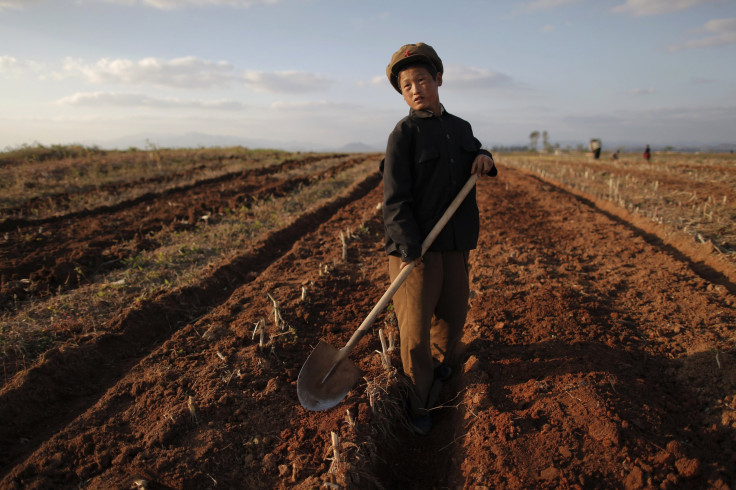Under Kim Jong Un, North Korea Faces Historic Famine As Drought Threatens Crop Production

A drought in North Korea could shrink the isolated country's crop production by as much as 20 percent, South Korea's Ministry of Unification said Tuesday. The country, which often faces food shortages, is in the middle of one of its worst droughts in years.
Under leader Kim Jong Un, North Korea's food production is estimated to fall by up to 10 percent this year, but that number could rise if the drought persists, the South Korean government reported. North Korean farmers have started switching crops in an attempt to lessen the effects. Many have planted corn instead of rice as water supplies continue to shrink, and North Korean authorities are now ordering similar changes to be made, UPI reported. The drought is shrinking the country's lakes and reservoirs, and the Ministry of Unification said potato and rice yields are forecasted to decrease rapidly. Corn production could also be affected.
Hundreds of thousands in North Korea are believed to have died in a 1990s famine -- and United Nations data shows that up to 70 percent of the country does not have food security, reported AFP. North Korea was able to push through a 2014 drought, but water supplies appear to be lower this year. Water levels in the Hamheung Dam are down 12 inches from last year.
The level of food production could approach amounts matching the famine of the 1990s. The decrease could be a production drop of as much as 3.84 million tons, which would be the lowest number since its Great Famine, according to a UN report.
South Korea delivered fertilizer to the country for the first time in five years in April. Sanctions had forbade agricultural aid from the South to the North.
North Koreans "are highly vulnerable to shocks and seasonal variations as these often mean reduced access to food, leaving the most vulnerable children and women with no other option than to reduce their food intake and further compromise their dietary diversity," the World Food Programme has said.
© Copyright IBTimes 2025. All rights reserved.






















